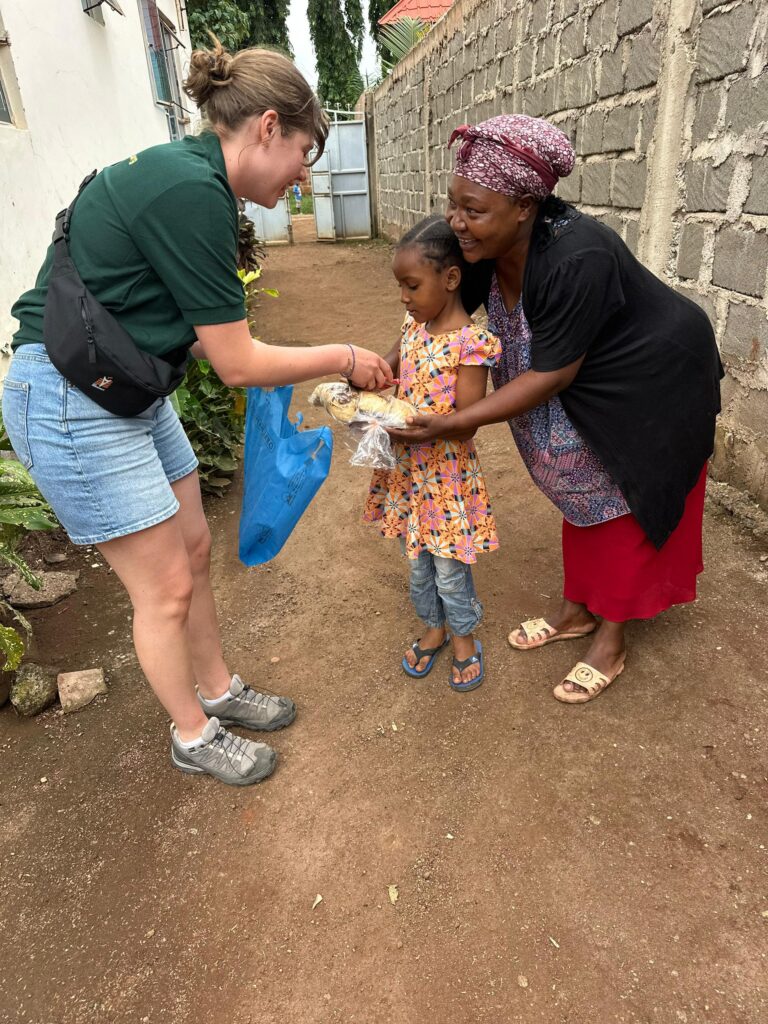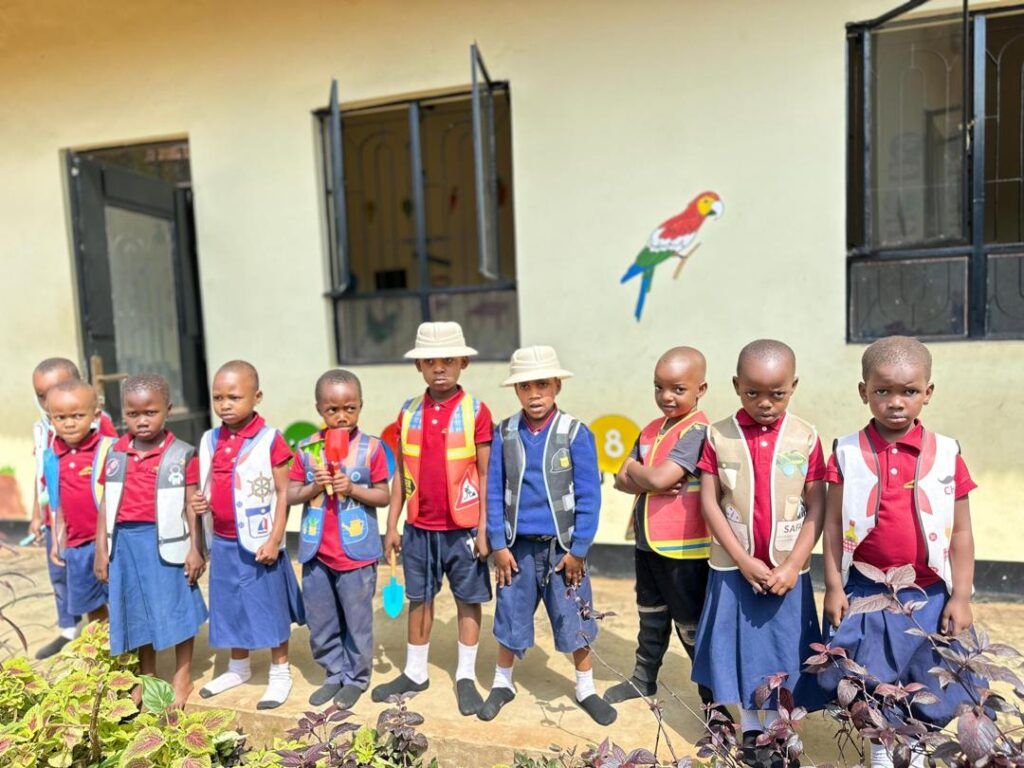For parents in Moshi, Tanzania, selecting the right early learning program for your child is a critical decision that shapes their early development and sets the stage for lifelong learning. Moshi, with its vibrant community and proximity to Kilimanjaro, offers a range of early learning options, from international preschools to local programs rooted in Tanzanian culture. This guide is the key factors to consider, providing a clear and comprehensive framework to help you choose the best program for your child while ensuring a nurturing, culturally relevant, and enriching environment.

1. Program Philosophy and Curriculum
The philosophy and curriculum of an early learning program define how your child will learn and grow. In Moshi, programs may follow international models like Montessori, which emphasizes independence through structured activities, or Reggio Emilia, which fosters creativity through child-led exploration. Others may incorporate play-based learning or blend Tanzanian cultural elements with global standards, such as teaching Swahili alongside English or integrating local storytelling.
Evaluate whether the curriculum balances academics (early literacy, numeracy), creative expression (art, music, dance), and physical development (outdoor play, motor skills). For Moshi kids, programs that include local culture—such as songs, traditions, or environmental awareness about Kilimanjaro—can foster pride and connection. Visit the program to observe how the philosophy is implemented. Are children engaged in hands-on activities? Does the curriculum adapt to different developmental stages? Ensure the program aligns with your values and your child’s needs.
2. Teacher Qualifications and Engagement
Teachers are the cornerstone of any early learning program, especially in Moshi, where diverse educational backgrounds are common. Look for educators with qualifications like degrees in early childhood education, Child Development Associate (CDA) credentials, or local certifications recognized in Tanzania. In international schools, check for training in global curricula like the International Baccalaureate (IB) or British EYFS (Early Years Foundation Stage).
Observe how teachers interact with children. Are they warm, patient, and encouraging? Do they foster curiosity and support individual needs? In Moshi, where multilingualism is common, teachers fluent in both Swahili and English can help children navigate bilingual environments. Ask about teacher-to-child ratios—NAEYC recommends 1:4 for infants and 1:10 for preschoolers—to ensure personalized attention. Low staff turnover is also key, as consistent caregivers build trust and stability.
3. Safety and Environment
A safe and welcoming environment is critical for young learners in Moshi. Inspect facilities for cleanliness, secure entry systems, and age-appropriate equipment, especially in outdoor play areas, which should be safe and shaded given Moshi’s warm climate. Classrooms should be organized, with spaces for group activities, quiet time, and creative play. Programs near Kilimanjaro may offer outdoor learning opportunities, so ensure these areas are well-maintained and secure.
Ask about safety protocols: Are staff trained in CPR or first aid? What are the emergency plans for natural events like heavy rains or tremors? How are health policies, such as managing illnesses or allergies, enforced? In Moshi, where community is key, programs should foster emotional safety through inclusive practices and respect for diverse backgrounds. Tour the facility to assess its atmosphere and suitability for your child.

4. Social and Emotional Development Focus
Early childhood is a critical time for building social and emotional skills, which are essential for Moshi kids growing up in a culturally rich, diverse community. Look for programs that integrate social-emotional learning (SEL) through activities like group play, storytelling, or role-playing, which teach empathy, cooperation, and conflict resolution. Programs that incorporate Tanzanian values, such as “ubuntu” (community and interconnectedness), can resonate deeply.
Ask how discipline is handled—positive approaches like redirection or teaching problem-solving are more effective than punitive measures. In Moshi, where children may interact with peers from varied backgrounds, programs should promote inclusivity and respect. Observe whether teachers model kindness and encourage children to express emotions, helping them build resilience and confidence for future challenges.
5. Parent Involvement and Communication
A strong parent-program partnership is vital for your child’s success. In Moshi, where community ties are strong, look for programs that prioritize regular communication through daily reports, apps like ClassDojo, or parent-teacher meetings. Programs that offer updates in both English and Swahili can be more accessible for local families. Ask how progress is shared—detailed reports on your child’s development, including social and academic milestones, are a good sign.
Some programs encourage parent involvement through events like cultural celebrations (e.g., Tanzanian Independence Day activities) or volunteering opportunities. Inquire about responsiveness to parental feedback, as this reflects a program’s commitment to collaboration. A program that values your input and keeps you informed strengthens your child’s learning experience.
6. Flexibility and Accessibility
Practical factors like location, hours, and cost are crucial in Moshi, where commuting and budgets vary. A program near home, work, or key areas like Moshi Town or the Kilimanjaro region simplifies logistics. Check if the schedule offers half-day, full-day, or extended care options to fit your routine. Some programs provide transport services, which can be a bonus in Moshi’s sometimes congested traffic.
Cost is a significant consideration. Ask about tuition, extra fees (e.g., for materials or field trips), and whether scholarships, subsidies, or sliding scale options are available, especially in community-based programs. Compare costs against quality to ensure value. A program that balances flexibility and affordability reduces stress, letting you focus on your child’s growth.

7. Accreditation and Reputation
ccreditation from organizations like the Tanzanian Ministry of Education, NAEYC, or international bodies ensures high standards in curriculum, safety, and staff training. In Moshi, programs like those at International School Moshi (ISM) may follow global accreditations, while local preschools may be certified by Tanzanian authorities. Research the program’s reputation through online reviews, parent testimonials, or Moshi-based parenting groups on platforms like WhatsApp or X.
Ask for references from current or former families to gain insights. Visit the program to observe classes—do children seem happy and engaged? Does the environment reflect Moshi’s cultural vibrancy? A strong reputation, backed by accreditation and positive feedback, signals reliability and quality.
8. Alignment with Your Child’s Needs
Every child in Moshi is unique, so the program should cater to their personality, interests, and developmental stage. A shy child may thrive in a smaller, nurturing setting, while an outgoing child might excel in a social, group-oriented program. For children with special needs, ask about accommodations like individualized plans or trained staff, which may be more common in international schools but are increasingly available locally.
Consider your child’s learning style—do they enjoy hands-on activities like art or outdoor exploration? Programs that offer enrichment activities, such as Swahili language lessons, music, or environmental education about Kilimanjaro, can spark interests. Ensure the program’s pace suits your child’s readiness, whether they’re preparing for Tanzanian primary schools or international curricula.
9. Trial Periods and Transition Support
Starting an early learning program is a big step for Moshi kids. Look for programs offering trial periods or gradual entry to ease the transition. Ask how they support children adjusting to routines, especially for first-time preschoolers. Programs that provide resources for parents—like tips for managing separation anxiety or preparing for kindergarten—show care for your child’s emotional well-being.
In Moshi, where community support is valued, some programs may involve families in transition activities, such as welcoming ceremonies or parent workshops. A program that prioritizes smooth transitions helps your child feel secure and confident.
10. Cultural and Community Integration
In Moshi, a program that embraces local culture and community can enrich your child’s experience. Look for programs that celebrate Tanzanian traditions, such as teaching Swahili songs, storytelling about Chagga or Maasai heritage, or hosting local festivals. Programs that partner with the Moshi community—through field trips to local markets or environmental projects—help children feel connected to their surroundings.
Ask how the program fosters inclusivity, especially in Moshi’s diverse setting with local and expatriate families. A culturally responsive program builds pride in identity while preparing children for global citizenship.
Making Your Decision
To choose the best early learning program for your Moshi kid, start by listing your priorities—perhaps cultural integration and teacher quality rank highest, or maybe location and cost are key. Create a shortlist of programs, including international schools like ISM or local preschools in Moshi Town. Visit each one to observe classes, meet teachers, and ask questions about curriculum, safety, and communication.

